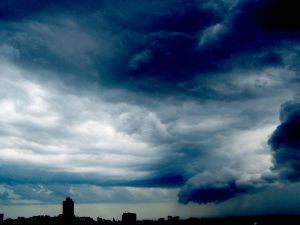 Tanzanian authorities closed a tourist pass on Mount Kilimanjaro earlier this year after three American tourists died in a rockslide while scaling the mountain.
Tanzanian authorities closed a tourist pass on Mount Kilimanjaro earlier this year after three American tourists died in a rockslide while scaling the mountain.
Geologists attributed the accident to high-rise global warming which melts the snow and, in turn, loosens the rocks.
And this is just one example…
Ski resorts are sweating.
Safaris are shrinking.
Islands are sinking.
By now, thanks in large part to Al Gore challenging us to face the Inconvenient Truth, most of us know that our planet is heating up. But in between shopping for a hybrid and replacing our light bulbs with CFLs, have we stopped to consider how this might affect our vacations?
Truth is, our future holidays might look a little… well, different, at least according to those who’ve been studying travel and environmental trends.
For one thing, some experts suggest that air travel itself will become problematic in the future.
Dr. Dave Reay, a climate change researcher at Edinburgh University in the UK and author of Climate Change Begins at Home, points out that our weather patterns may make plane travel an iffy affair. “More frequent and intense storms will ground increasing numbers of planes,” he writes. “When it’s not too windy and the runway is okay, planes may still struggle to get airborne with soaring summertime temperatures meaning less lift.”
Where we go may also change, he believes. “Many traditional summer sun destinations are facing failing water supplies, scorching summer temperatures and a host of disease outbreaks… In Scotland, the ski industry is tottering on its last tartan pole, with the number of ski days having dropped by a quarter in the past 20 years.”
 And it’s expected to get worse.
And it’s expected to get worse.
David Rochester, senior pricing manager at Halifax Insurance, the eighth largest travel insurance company in the UK with over 22 million customers worldwide, commented in a Holiday 2030 report released by the company that, “With increased extreme weather events and dramatic temperature increases predicted, holidaymakers will be considerably more at risk abroad in 20 or 30 years than they are today.” Kind of kills that holiday mood, doesn’t it?
But while there are proposed solutions, even those are controversial.
There was recent umbrage at British thank-tank The Centre For Future Studies’ (CFS) suggestion that future eco-tourists enter a lottery to win the right to visit some of the world’s popular ecotourism destinations. “There is conflict between environmental concerns and commercial interests,” said CFS director Frank Shaw. “In pursuit of economic goals, other problems are being overlooked.”
He pointed specifically to the degradation of such tourism hotspots (hot in more ways than one!) as The Great Barrier Reef in Australia, which generates roughly $5 billion from its 1.8 million visitors annually. Those visits take their toll, argue those in favor of a lottery to decrease the number of tourists.
The travel industry, however, has had a strong reaction to this, noting that ecotourism frequently injects a vested interest into protecting the environment — and that those who visit these destinations leave with a greater passion to fight for their protection.
Still, it’s hard to deny that increased traffic can wreak havoc on fragile ecosystems. For example, China decided to keep tourists away from melting glaciers in its Tianshan, or “heavenly mountains” region. The glaciers provide drinking water to 2.3 million people, but are shrinking by about 25 feet a year, due to global warming. And tourists are reputedly littering, polluting and even driving across the ice. Thus comes the decision to close the doors to tourists, figuratively speaking.
Other at-risk tourist destinations, according to the Future of Travel report (created by The Centre For Future Studies), include:
- Everglades, Florida: Due to increasing frequency of hurricanes;
- Taj Coral Reef, Maldives: Rising sea levels will put much of the area underwater;
- Cologne Cathedral, Germany: Already considered “at risk,” this monument may be irreparably damaged from pollution;
- Great Barrier Reef: Cruise ships are being blamed for damaging one of the world’s largest marine ecosystems;
- Athens, Greece: We’re already seeing temperatures of more than 40C, which is expected to be exacerbated;
- Tuscany, Italy: Heat waves and a rapid increase in wildlife threaten to make this a less attractive tourist spot;
All of this news will likely evoke different reactions. Some might want to get a glimpse of the world’s natural wonders while they still have the chance. Others might choose to travel closer to home, thereby reducing the greenhouse gas emissions from flying, and thus lightening the load on the world’s hotspots. The bottom line? However you respond and wherever you go, you should always travel responsibly and tread lightly.
Previously by Leslie Garrett on PeterGreenberg.com:
- Eco-Oakland: The City You Only Thought You Knew
- Chicago: More Green Than Meets the Eye
- Eco-Beaches
- The Good, The Green and the Downright Crazy Tours
- A Convention with Conviction: Greening Your Business Meetings
- The Virtuous Traveler: Green Honeymoons
- Bye Polar
- The Park is Greener
- Greener Skies
- Green Travel Gadgets
Leslie Garrett, The Virtuous Traveler, is an award-winning journalist and author. Visit her at TheVirtuousTraveler.com.












